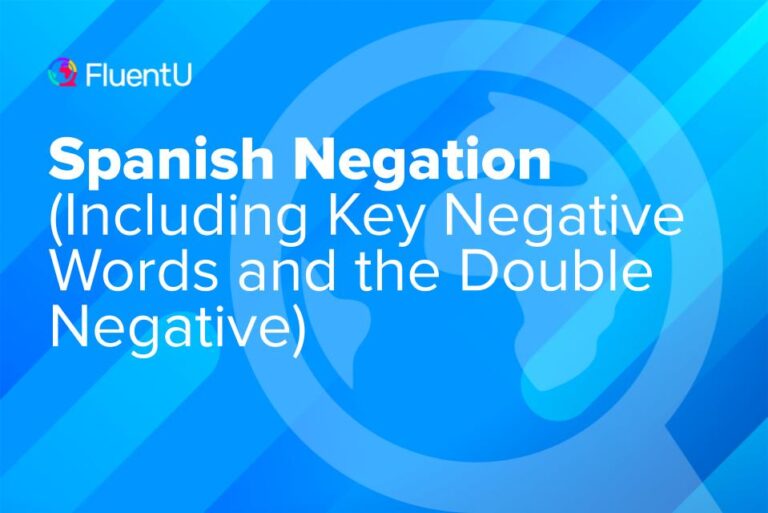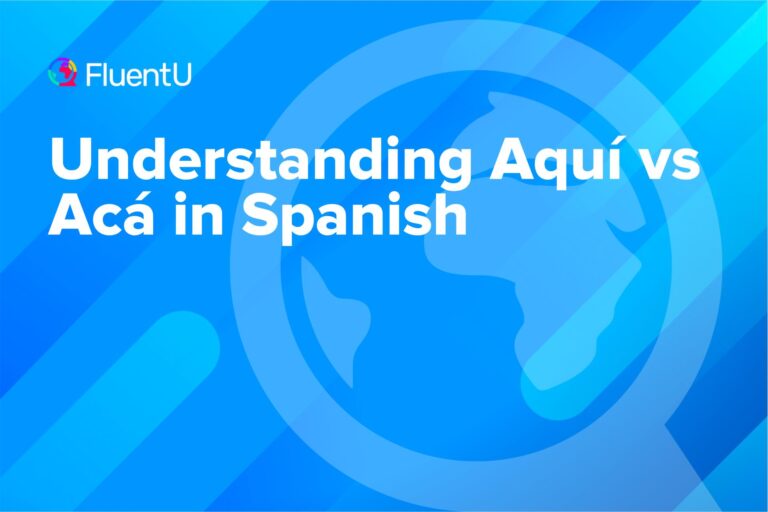Contents
- Hard Spanish Words
- 1. Impermeabilizante (Waterproofing)
- 2. Ferrocarril (Railroad)
- 3. Desarrolladores (Developers)
- 4. Difícil , Fácil (Difficult, Easy)
- 5. Actualmente , Desafortunadamente , Probablemente (Currently, Unfortunately, Probably)
- 6. Verde , Tarde (Green, Afternoon)
- 7. Estadística (Statistics)
- 8. Huevos revueltos (Scrambled eggs)
- 9. Idea (Idea)
- 10. Aeropuerto (Airport)
- More Hard Spanish Words
- Hard Spanish Letters to Pronounce
- How to Handle Spanish Pronunciation Challenges
- And One More Thing…
54 Hard to Pronounce Spanish Words

Have you come across some hard Spanish words that get your tongue tied? There are a lot of words and aspects of Spanish pronunciation that English speakers struggle with.
I’ll point you to the 54 most difficult Spanish words to pronounce, each with a tip to master them and other words like them, and the audio will help you practice your way to beautiful pronunciation.
Download: This blog post is available as a convenient and portable PDF that you can take anywhere. Click here to get a copy. (Download)
Hard Spanish Words
Listed below are some of the hardest words to pronounce in Spanish. I’ve focused on more common words that people need to use. Master these and the rest is easy!
1. Impermeabilizante (Waterproofing)
In rainy Latin American countries, you’ll likely see this word often—it can pour a lot in the wet seasons. And to be honest, I’ve even seen a few Spanish speakers struggle with this word.
The number of syllables and the vowel diphthong in the middle make it a hard one.
TIP: Break this down into separate syllables and say it slowly until you’re comfortable. There’s no rush!
“Im-peR-mi-a-bil-i-SAN-teh”
Example sentence:
Necesitamos aplicar impermeabilizante al techo para evitar filtraciones. (We need to apply waterproofing to the roof to prevent leaks.)
2. Ferrocarril (Railroad)
Two double “r’s” here in one word!
TIP: The “r” in Spanish is rolled both at the start of any word and when they’re doubled, while a standalone “r” is also pronounced differently from English.
For many English speakers, these sounds are very hard, but they’re possible. When making any “r” sound in Spanish, the tip of your tongue should lightly touch the top of your mouth. Alternatively, to find the right position, say “t” in English. That’s where your tongue goes.
To roll the “r” then, the issue is getting your tongue, in that position, to vibrate. Breathe out of your mouth and let your tongue vibrate up and down. You can do it!
Example sentence:
El ferrocarril es un medio de transporte importante en muchos países. (The railroad is an important means of transportation in many countries.)
3. Desarrolladores (Developers)
This word is great fun. You have the double-whammy of “rr,” as well as “ll,” with lots of syllables to boot.
TIP: Correct pronunciation of “ll” depends on the country. But for much of Latin America, it’s the same as an English “y,” but a bit harder.
In Spain, “ll” is pronounced like the “j” in jump; in Argentina, it’s pronounced like an English “sh,” and in Venezuela and Colombia, it’s pronounced somewhere between an English “y” and “j.”
Example sentence:
Los desarrolladores están trabajando en una nueva versión de la aplicación. (The developers are working on a new version of the application.)
4. Difícil , Fácil (Difficult, Easy)
The accents aren’t where you’d expect with these words, and many English speakers pronounce them “DI-fi-cil” and “fa-CIL,” instead of their correct pronunciations: “di-FI-cil” and “FA-cil.”
TIP: Note where the accents are and stress that syllable. Say the word ten times until your tongue can’t conceive of pronouncing it any other way.
Example sentence:
Aprender un nuevo idioma puede ser difícil al principio, pero con práctica se vuelve más fácil. (Learning a new language can be difficult at first, but with practice it becomes easier.)
5. Actualmente , Desafortunadamente , Probablemente (Currently, Unfortunately, Probably)
The temptation here would be to say the similar-sounding English word, then add a “men-TAY” to the end.
TIP: Remember to pronounce the final “e” as “eh,” not “ay,” then break these words down into syllables and give each the same weight.
Turn your English off and say “des-a-for-tu-na-da-MEN-te” slowly at first, then accelerate to normal speaking speed.
Example sentence:
Actualmente estoy estudiando para mis exámenes finales. (Currently, I am studying for my final exams.)
Desafortunadamente, no podré asistir a la fiesta de este fin de semana. (Unfortunately, I won’t be able to attend the party this weekend.)
Probablemente iré al cine esta noche. (I’ll probably go to the movies tonight.)
6. Verde , Tarde (Green, Afternoon)
The “r-d” combination in Spanish is a really difficult move for the tongue—almost like quick tongue acrobatics.
TIP: Put your effort into the first syllable and that difficult “r,” then let the “d” be softer, and the “de” half of the word like an afterthought.
Example sentence:
El césped está muy verde gracias a la lluvia reciente. (The grass is very green thanks to the recent rain.)
Nos vemos esta tarde para tomar un café. (See you this afternoon for a coffee.)
7. Estadística (Statistics)
People often get tongue-tied with this word, perhaps because it’s similar to English but with an extra syllable at the start. The number of “t’s” and “d’s” can also add to your troubles.
TIP: Note the stressed syllable in the middle and don’t stress yourself about the difference between “t” and “d” in this word. Pronounce that first syllable well, so that your mouth is aware you’re going into a Spanish word rather than English.
Example sentence:
Las estadísticas muestran que hay una tendencia al alza en el uso de internet. (The statistics show that there is an upward trend in internet usage.)
8. Huevos revueltos (Scrambled eggs)
The obstacle here would be that “v” is pronounced as a soft “b,” plus the double set of diphthongs (“ue”).
TIP: There’s no compromising. The “v” in Spanish is always pronounced as “b,” and in the middle of a word it’s a gentler version of a “b” with the lips barely touching.
To pronounce the diphthong, just say both vowel sounds, then blur them together. So “oo-eh” becomes “weh.”
Example sentence:
Me encanta desayunar huevos revueltos con tocino los domingos. (I love having scrambled eggs with bacon for breakfast on Sundays.)
9. Idea (Idea)
This is another one of those trick words that you’ll be tempted to pronounce just like you would in English. Resist this urge!
TIP: Practice pronouncing this: “ee-DEH-ah,” until it becomes natural to you!
Example sentence:
Tengo una idea genial para nuestro próximo proyecto. (I have a great idea for our next project.)
10. Aeropuerto (Airport)
What a lot of vowels and diphthongs to boot, followed by those meddlesome “r’s!”
TIP: For the first diphthongs, just like the “ue” explained above, pronounce the two vowels until they merge together. So, “ah-eh” becomes “ay.”
Next, practice that “ue” followed by the “r.” Once you’ve mastered these two parts, you can build on the rest.
Example sentence:
Tenemos que llegar temprano al aeropuerto para no perder nuestro vuelo. (We have to arrive early at the airport so we don’t miss our flight.)
More Hard Spanish Words
Looking for more difficult words to test your pronunciation skills? Have a try with these!
| Spanish | English | Example sentence |
|---|---|---|
| somnoliento | sleepy | Después de la comida, se sintió somnoliento y se echó una siesta. (After the meal, he felt sleepy and took a nap.) |
| inquebrantable | unyielding | Su determinación era inquebrantable, nunca renunciaba ante los desafíos. (His determination was unyielding, he never gave up in the face of challenges.)" |
| reacio | reluctant | Al principio, estaba reacio a aceptar el nuevo proyecto. (At first, he was reluctant to accept the new project.) |
| impertérrito | unperturbed | A pesar de la situación difícil, él permaneció impertérrito. (Despite the difficult situation, he remained unperturbed.)" |
| inconcebible | inconceivable | Inconcebible, ¿cómo pudo suceder eso? (Inconceivable, how could that happen?)" |
| vicisitud | vicissitude | Las vicisitudes de la vida nos enseñan lecciones importantes. (The vicissitudes of life teach us important lessons.) |
| recalcitrante | recalcitrant | El niño era recalcitrante y se negaba a seguir las reglas. (The child was recalcitrant and refused to follow the rules.)" |
| soporífero | soporific | La conferencia fue tan soporífera que muchos se durmieron. (The conference was so soporific that many fell asleep.) |
| turbulento | turbulent | El avión atravesó una zona turbulenta durante el vuelo. (The plane went through a turbulent area during the flight.) |
| perspicaz | insightful | Su comentario fue muy perspicaz y nos hizo reflexionar. (His comment was very insightful and made us reflect.)" |
| infundado | unfounded | Sus sospechas eran infundadas y no tenían base. (His suspicions were unfounded and had no basis.) |
| acucioso | meticulous | Su trabajo era acucioso y siempre revisaba todos los detalles. (His work was meticulous and he always checked all the details.) |
| efervescente | effervescent | Su personalidad efervescente iluminaba la habitación. (Her effervescent personality lit up the room.) |
| candente | scorching | El sol emitía un calor candente en el desierto. (The sun emitted scorching heat in the desert.) |
| vorágine | maelstrom | El caos de la ciudad era una vorágine de actividad constante. (The chaos of the city was a maelstrom of constant activity.) |
| despavorido | panic-stricken | La multitud estaba despavorida cuando comenzó el incendio. (The crowd was panic-stricken when the fire started.) |
| perentorio | peremptory | Recibió una orden perentoria de su jefe. (He received a peremptory order from his boss.) |
| exiguo | meager | Recibieron un salario exiguo que apenas les alcanzaba para vivir. (They received a meager salary that barely covered their living expenses.) |
| tenue | faint | La luz de la luna era tenue y apenas iluminaba el camino. (The moonlight was faint and barely lit the path.) |
| irreprochable | irreproachable | Su conducta era irreprochable y siempre cumplía con sus responsabilidades. (His conduct was irreproachable and he always fulfilled his responsibilities.) |
| mellizo | twin | Los mellizos eran idénticos y siempre vestían igual. (The twins were identical and always dressed alike.) |
| vigoroso | vigorous | Su salud era vigorosa y nunca se enfermaba. (His health was vigorous and he never got sick.) |
| pútrido | putrid | El olor a carne pútrida llenaba el aire. (The smell of putrid meat filled the air.) |
| inédito | unpublished | Su última novela era inédita y aún no se había publicado. (His latest novel was unpublished and had not yet been published.) |
| estrambótico | outlandish | Su forma de vestir era estrambótica y llamaba la atención adondequiera que iba. (His way of dressing was outlandish and attracted attention wherever he went.) |
| estribillo | chorus | Mi parte favorita de esta canción es el estribillo. (My favorite part of this song is the chorus.) |
| desinhibición | lack of inhibition | La desinhibición de Alberto lo hace ver seguro de sí mismo. (Alberto's lack of inhibition makes him look self-confident.) |
| recorrer | to go (around) | ¡Salgamos a recorrer la ciudad! (Let's go out and roam around the city!) |
| sinvergüenza | scoundrel | ¡Eres un sinvergüenza, Armando! (You are a scoundrel, Armando!) |
| cerezas | cherries | ¿Quieres unas cerezas? (Do you want some cherries?) |
| merequetengue | mess | ¡¿Qué es todo este merequetengue?! (What's this whole mess?) |
| ñoño | nerdy | Él es un poco ñoño, pero es muy agradable. (He's a little nerdy, but he's really nice.) |
| reñir | to quarrel | Es inútil reñir por esto. (It's pointless to quarrel about this.) |
| branquia | gill | Los peces tienen branquias. (Fish have gills.) |
| retratar | to portray, to paint a portrait of | Quiero retratarte algún día. (I want to paint your portrait someday.) |
| occidentalización | westernization | Latinoamérica se resiste a la occidentalización de su política exterior. (Latin America resists the westernization of its foreign policy.) |
| quirúrgico | surgical | Este procedimiento quirúrgico es muy costoso. (This surgical procedure is very costly.) |
| añoranza | longing, nostalgia | Es difícil no sentir añoranza de nuestra juventud. (It's hard not to feel nostalgia for our youth.) |
| reverberar | reverberate | El sonido de la explosión reverberó en todo el valle. (The sound of the explosion reverberated throughout the valley.) |
| pedigüeñería | mooching | ¡Basta de tu pedigüeñería! (Enough of your mooching!) |
Hard Spanish Letters to Pronounce
Spanish Consonants
There was an interesting Reddit discussion where someone asked what English speakers sound like to native Spanish speakers.
One thing commenters stressed was the pronunciation of “b” and “v,” which are pronounced the same in Spanish. English speakers struggle to let go of the “v” sound they’re used to and pronounce the letter “v” like a “b” in many Spanish words such as ceviche .
The Spanish “r” is definitely at the top of the list of uphill battles for English speakers—both the rolled version and the single “r”—and it can make or break being understood. Especially for telling the difference between words like caro (expensive) and carro (car)!
There are also a few sounds in Spanish that English speakers pronounce too harshly. These include the Spanish “d” and “t,” which are softer, with almost no air blown out. When pronouncing the “t” in Spanish, the tip of your tongue should just touch the back of your teeth, like in trato (deal).
Spanish Vowels
Vowels in Spanish are another one on the list. They’re choppy and short and all the same length, except when one vowel follows another.
English speakers tend to vary the length of vowels, and they’ll often distort the sounds, as with the pronunciation of “e.” For example, English speakers often pronounce the name José as “hoe-ZAY” instead of “ho-SEH.”
How to Handle Spanish Pronunciation Challenges
Exaggerate Sounds
In Spanish, almost all consonants, vowels and syllables are fully pronounced, with vigor, dedication and an open mouth. English speakers muffle a lot of the sounds in words and we join words together and close our mouths more.
So if it feels like you’re exaggerating in Spanish, that’s what you should do, and make it a habit.
Don’t Rely on English Vowel Sounds
While in English most vowels in everyday speech are pronounced as a schwa—a short “uh” sound—that isn’t the case in Spanish.
Making this switch, and pronouncing each vowel properly, makes all the difference.
Here are some more tips for nailing Spanish vowels:
- The “a” in Spanish is always pronounced like the “a” in “hat” (but shorter) or “haha” (but more open)
- The “e” is always pronounced “eh,” as in “bed” (but shorter).
- The “i” is always pronounced like the “ee” in “see.”
- The “o” is pronounced like the “o” in “more,” but shorter.
- The “u” is pronounced like the “oe” in “shoe”
In all cases, a wide open mouth is important to making these vowels sound natural.
Listen and Mimic
Really paying attention to how native speakers talk, and then trying to mimic that, will help with your overall pronunciation.
You can listen to how native speakers talk and mimic them with a program like Spanishpod101. Here, you’ll find video and audio content with transcripts, vocabulary lessons and grammar notes. The transcripts make it easy to follow along and repeat after the speakers.
You can also listen to native speakers with a program like FluentU, which uses video clips from authentic Spanish media to teach the language as it’s really used.
One scary but useful trick you can try is to record yourself (you’ll hear your flaws much more clearly that way) and then compare that to recordings made by native Spanish speakers. You’ll hear the discrepancies quite clearly and can practice listening and repeating those trouble areas.
Try Some Popular Tongue Twisters
And if you really want to exercise your mouth and tongue, you can try out these popular Spanish tongue twisters for size:
Cuando cuentes cuentos, cuenta cuantos cuentos cuentas, porque si no cuentas cuantos cuentos cuentas nunca sabrás cuantos cuentos contaste.
(When you tell stories, count how many stories you tell, because if you don’t count how many stories you tell, you’ll never know how many stories you told.)
Tres tigres tragaban trigo en un trigal, en tres tristes trastos, tragaban trigo tres tristes tigres.
(Three tigers swallowed wheat in a wheat field, in three sad containers, three sad tigers swallowed wheat.)
Pepe peina pocos pelos pero peina peluqueros, peina Pepe peluqueros con el peine de los pelos.
(Pepe combs few hairs, but he combs hairdressers, Pepe combs hairdressers with the hair comb.)
Join Some Words
In Spanish, we join words that start and end with the same letter.
For example, Qué es eso (What is that) is often pronounced “quee-so” (yes, like the word for cheese, but with a longer “e” sound) and Voy a hacer (I’m going to do…) is pronounced “boi a-ser.”
Be Comfortable with Speaking in a Very Different Way
When you switch from, say, Windows to Linux, or from eating dinner to eating dessert, you don’t expect the same feelings and experiences to translate to that new thing.
To the extent that you can, you need to completely switch off English and your preconceived notions about how things should be said, and log yourself into a different system.
Mastering pronunciation can be a tough journey, though rewarding, and the bonus is that the better your pronunciation, the more you’ll understand as well—even in the worst situations, like over a crackly phone line!
Download: This blog post is available as a convenient and portable PDF that you can take anywhere. Click here to get a copy. (Download)
And One More Thing…
If you've made it this far that means you probably enjoy learning Spanish with engaging material and will then love FluentU.
Other sites use scripted content. FluentU uses a natural approach that helps you ease into the Spanish language and culture over time. You’ll learn Spanish as it’s actually spoken by real people.
FluentU has a wide variety of videos, as you can see here:

FluentU brings native videos within reach with interactive transcripts. You can tap on any word to look it up instantly. Every definition has examples that have been written to help you understand how the word is used. If you see an interesting word you don’t know, you can add it to a vocab list.

Review a complete interactive transcript under the Dialogue tab, and find words and phrases listed under Vocab.

Learn all the vocabulary in any video with FluentU’s robust learning engine. Swipe left or right to see more examples of the word you’re on.

The best part is that FluentU keeps track of the vocabulary that you’re learning, and gives you extra practice with difficult words. It'll even remind you when it’s time to review what you’ve learned. Every learner has a truly personalized experience, even if they’re learning with the same video.
Start using the FluentU website on your computer or tablet or, better yet, download the FluentU app from the iTunes or Google Play store. Click here to take advantage of our current sale! (Expires at the end of this month.)








